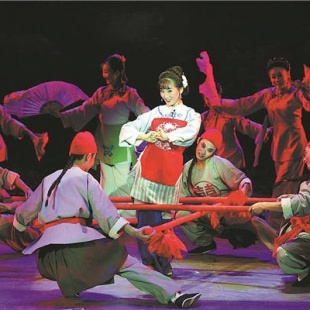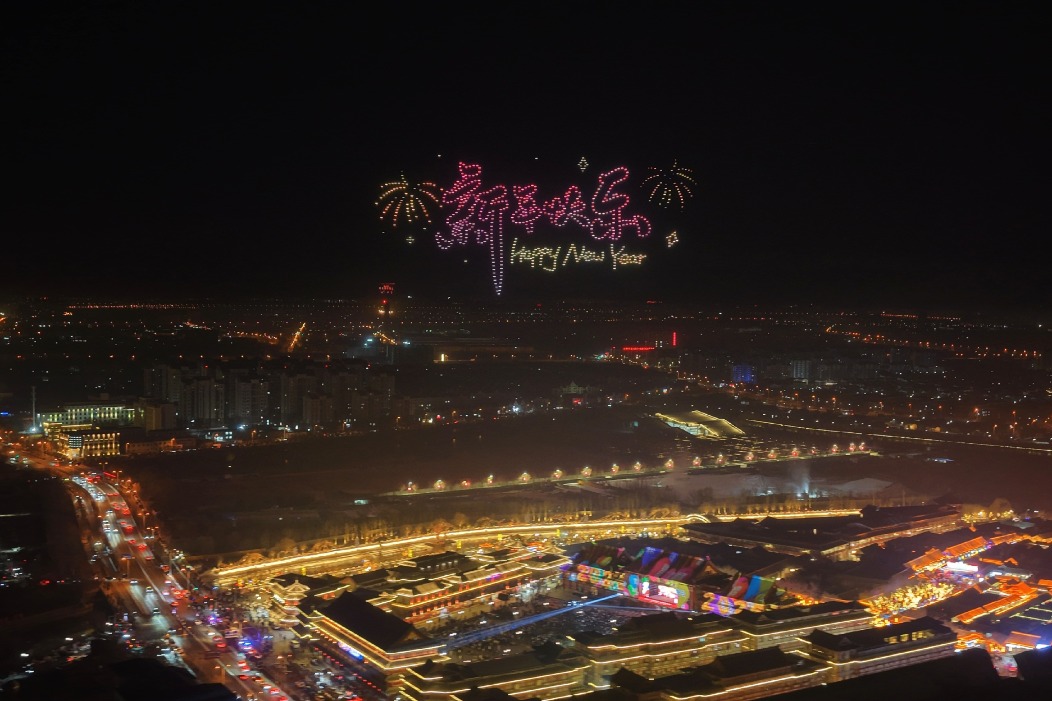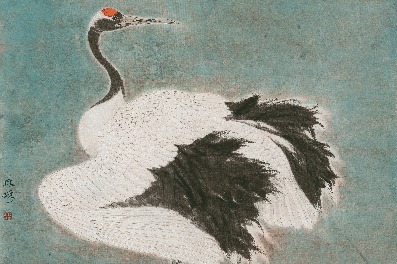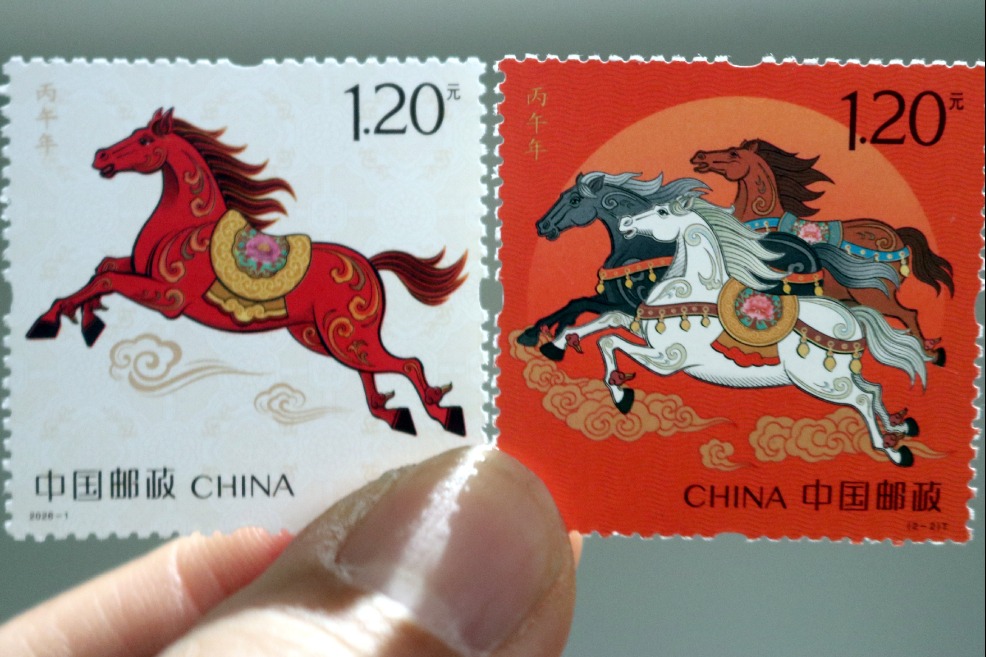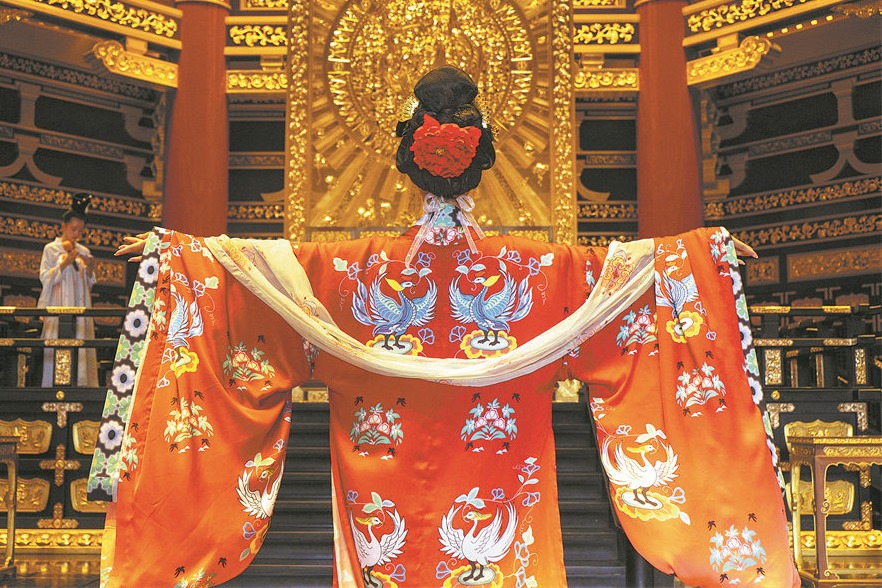Opera troupes find ways to survive pandemic

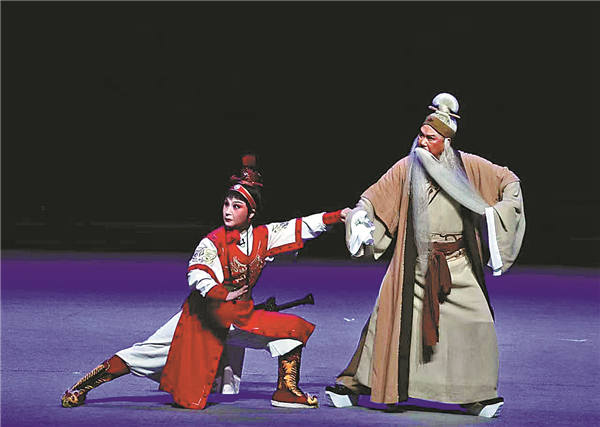
For example, they perform in their dressing rooms, with one person singing a song or one line of the lyrics and the next performer singing a new song starting with the last word the previous person sang. They also perform in a meeting room, with male and female singers sitting face to face, performing alternately.
Liu said: "There is no grand stage, or even costumes or makeup. They just sing the songs. The atmosphere is relaxing and these young performers are of a similar age to the viewers. I guess this is why people love watching the performances."
For Liu, Huangmeixi Opera is as fun and intriguing as any contemporary art form that young people enjoy, such as pop music and movies.
Born in Anqing city, Huaining, Liu grew up listening to and watching Huangmeixi Opera, as her family members, including her grandfather and mother, are big fans of the old art form.
Huangmeixi is one of the major traditional operatic forms in China, along with Peking, Yueju and Kunqu operas. Originally sung by women picking tea, Huangmeixi Opera is also known as caichaxi (tea-picking opera).
Originating in Anqing, Huangmeixi Opera became popular in nearby regions, including Hubei and Jiangxi provinces, during the Qing Dynasty (1644-1911). In 2006, it was included on the first national intangible cultural heritage list.
"I particularly remember my mother singing one Huangmeixi Opera piece for me. It was my favorite bedtime song when I was a child," Liu said.
The song, Twelve-Month Melody of Meng Jiangnyu, is based on the legend of Meng, whose husband, a scholar named Wan Xiliang, like millions of other people, was taken away to work in the country.
Forced to leave their homes, these people were assigned to build the Great Wall. Nothing was heard from Wan after he was taken away, and Meng missed him terribly as she stayed home counting the days, months and seasons since she last saw him.
She made a winter coat for Wan and set off to look for him. After experiencing numerous hardships, she arrived at the Great Wall, only to find that he had died. Meng was unconsolable, patting the wall as she wept. Suddenly, a gust of wind blew and a large area of the wall collapsed.
Liu said: "I kept asking my mother questions about Meng, and the beautiful songs linger in my head. Now, Twelve-Month Melody of Meng Jiangnyu is one of the most popular songs on our livestreaming shows."
She added that during the 1970s, her village often screened movies outdoors in the evenings. She especially loved watching one of the films, Tian Xian Pei, or The Marriage of The Fairy Princess, which features Huangmeixi Opera actress Yan Fengying. Premiered in 1956, the plot centers on a love story between Seventh Fairy, the youngest daughter of the emperor in heaven, and a young man, Dong Yong.
"The songs in the movie are as enchanting as the story itself. I couldn't help learning to sing them," Liu said.


